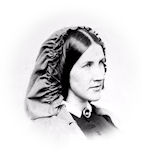March 11.—Manassas, Va., being evacuated by the rebel troops, this day the National forces took peaceable possession. Previous to their retreat the rebels attempted to destroy such of their stores as they could not carry with them. Bridges were burnt, the railroad tracks were broken up, and a large amount of commissary stores and other property was destroyed by fire. They left behind them, however, eighty army wagons, six caissons in good order, a large quantity of army clothing, good supplies of medical stores, besides many other useful articles. The forts were all dismantled, but the huts, sufficient to accommodate twenty-five or thirty thousand men, and built in a substantial manner, were left unharmed.—(Doc. 85.)
—This day Jeff. Davis sent a message to the rebel Congress, stating that he had suspended Gens. Floyd and Pillow from their commands until they could give more satisfactory accounts of their action at Fort Donelson. He is dissatisfied with their reports. The message states that neither of them say that reinforcements were asked for, nor do they show that the position could not have been evacuated and a whole army saved as well as a part of it. It is also not shown by what authority two senior generals abandoned their responsibility by transferring the command to a junior officer. —(Doc. 46.)
— This afternoon Assistant Surg. A. C. Rhoads, of the Pocahontas, by permission of his commanding officer, landed with a boat’s crew near Brunswick, Ga., for the purpose of procuring some fresh beef, for the ships. Having accomplished his object, the boat was returning to the Pocahontas, but had scarcely gone twenty yards from the beach, when they were suddenly fired upon by a body of rebels concealed in a thicket, and two men, John Wilson and John Shuter, were instantly killed, and seven wounded, one, William Delaney, mortally, and two severely, namely, William Smith, second, (first-class fireman,) and Edward Bonsall, (coxswain.)
After the rebels had fired their first volley they called out, in most offensive language, to surrender; but this demand was refused by Dr. Rhoads, who, with the assistance of Acting Paymaster Kitchen and his wounded boat’s crew, pulled as rapidly as they could toward the Pocahontas, the enemy continuing their fire.
In a few minutes a shell from one of the eleven guns of the Mohican dropped among them, and quite near to another company of about sixty men, who were advancing rapidly. The rebels scattered and fled in all direction. Several shells were also fired at a locomotive and train observed in the distance, and it is supposed with effect —Flag-Officer Du Pont’s Report.
—In the rebel Congress at Richmond, Va., a vote of thanks was passed to Capt Buchanan, his officers and crew, for their gallantry in the action in Hampton Roads, Va.
—Gen. Grant was this day presented with a sword by the officers of his command, at Fort Henry. The sword is of most exquisite workmanship, and manufactured at great expense. The handle is ivory, mounted with gold, and the blade of the finest texture and steel. There are two scabbards — one of fire-gilt and the other of gilt, mounted at the band. Accompanying the sword is a beautiful sash and belt, all inclosed in a fine rosewood case. The inscription on the sword was simply as follows: “Presented to Gen. U. S. Grant by G. W. Graham, C. R. Lagou, C. C. Marsh, and John Cook, 1861.”—Gen. C. F. Smith has taken command of the army in the field, Gen. Grant remaining at Fort Henry. The latter has applied to Gen. Halleck to be relieved of his command altogether.
—Col. Geary, Acting Brigadier-General of troops at Leesburg, Va., made a personal reconnoissance yesterday as far as Carter’s Mills. The trail of the retreating enemy was blackened with the ruins of granaries, ashes of hay and grain-stacks, fences, etc. He found the bridge over Goose Creek had been burned. The rebels have completely fallen back. The command continues to make captures of rank secessionists. The loyal feeling is growing, and many persons come forward to take the oath of allegiance daily.
Col. Geary, with some of his officers and a detachment of the First Michigan cavalry, rode to Ball’s Bluff to-day and buried the whitened bones of the brave Union soldiers who fell upon that field in October last. Impressive remarks preceded this humane act, and a monument of gross rebel neglect was hidden from human sight— N. Y. Times, March 12.
—The occupation of Manassas, Va., by the National troops, was celebrated throughout the loyal States in every manifestation of joy and patriotism.
—President Lincoln assumed the active duties of Commander-in-Chief of the Army and Navy of the United States. His first order, issued January twenty-second, but only now made public, directs a general movement of the land and naval forces against the rebels on the twenty-second day of February. The army and naval forces designated for this movement are especially directed to be ready, and the Secretaries of War and of the Navy, the General-in-Chief, McClellan, and all other commanders and subordinates are notified that they will be held to a strict and full accountability for the prompt execution of the order. The second order directs the organization of the Army of the Potomac into five corps, and designates the commanders of each. The third order states that Gen. McClellan, having personally taken the field, he is relieved of the command of all other military departments except that of the Department of the Potomac. The two departments of Generals Halleck and Hunter, with a portion of that now under Gen. Buell, are consolidated and designated as the Department of the Mississippi, and placed under the command of General Halleck. The country west of the Department of the Potomac, and east of the Department of the Mississippi, is designated the Mountain Department, and placed under command of General Fremont This department will include Western Virginia and East-Tennessee north of Knoxville. Commanders of departments are notified to report directly to the Secretary of War, and that prompt, full and frequent reports will be expected of them.—(Doc. 86.)






